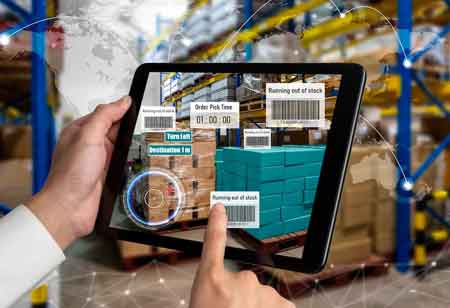CLOSE
Specials
I agree We use cookies on this website to enhance your user experience. By clicking any link on this page you are giving your consent for us to set cookies. More info
Be first to read the latest tech news, Industry Leader's Insights, and CIO interviews of medium and large enterprises exclusively from Energy Tech Review
Thank you for Subscribing
Terminal Automation: A Key to Sustainable Energy Supply Chains
Terminal Automation Systems (TAS) in Asia-Pacific optimize energy usage, reduce emissions, and ensure environmental compliance using AI, machine learning, and IoT to streamline vessel movements and address equipment malfunctions.

By
Energy Tech Review | Thursday, November 20, 2025
Stay ahead of the industry with exclusive feature stories on the top companies, expert insights and the latest news delivered straight to your inbox. Subscribe today.
Terminal Automation Systems (TAS) in Asia-Pacific optimize energy usage, reduce emissions, and ensure environmental compliance using AI, machine learning, and IoT to streamline vessel movements and address equipment malfunctions.
FREMONT, CA: Terminal Automation Systems (TAS) offers innovative technologies to minimize energy waste, reduce emissions, and enhance environmental compliance in Asia, a key global energy trade hub.
Implementing TAS is pivotal in reducing carbon footprints by enhancing energy efficiency, minimizing emissions, and ensuring regulatory compliance. TAS optimizes energy usage through real-time monitoring of terminal operations, identifying inefficiencies, and enabling intelligent control of equipment to reduce idle time and ensure energy is utilized only when necessary. Furthermore, predictive maintenance reduces unplanned downtime and energy losses.
In terms of emission reduction, TAS streamlines vessel movements and cargo handling to minimize travel distances, reduce vehicle idling and address equipment malfunctions that contribute to emissions.
TAS also enhances environmental compliance by generating data for informed decision-making, helping identify ecological risks, and facilitating adherence to regulatory standards, including emission tracking and water quality monitoring.
The environmental benefits of TAS are multifaceted, contributing to both sustainability and operational efficiency. One of the primary advantages is the reduction in fuel consumption, as TAS optimizes vessel movements and cargo handling, resulting in lower fuel use and associated emissions. This optimization also significantly decreases greenhouse gas emissions, including carbon dioxide, methane, and nitrous oxide, thereby supporting global efforts to combat climate change. Additionally, by minimizing harmful emissions, TAS improves air quality, which benefits public health. Water conservation is another key benefit, with TAS enabling the identification and rectification of leaks or inefficiencies, reducing water waste.
Technological advancements play a pivotal role in enhancing TAS's environmental impact. Artificial intelligence (AI) can optimize operations, predict equipment failures, and mitigate environmental risks. Machine learning algorithms improve efficiency by analyzing large datasets to reduce emissions and support informed decision-making. The Internet of Things (IoT) complements these systems by providing real-time data on energy consumption, equipment performance, and environmental conditions.
Regarding environmental certifications, TAS can be aligned with international standards like ISO 14001, which focuses on environmental management systems. Additionally, ports, particularly in the APAC region, have achieved Green Port Certification, highlighting their dedication to sustainability and environmental responsibility.
TAS provides a robust solution for decreasing the region's carbon footprint of energy supply chains. By optimizing processes, minimizing energy waste, and enhancing environmental compliance, these systems contribute to a more sustainable and resilient energy future. As technology continues to evolve, further innovative applications of Terminal Automation Systems can be anticipated in the coming years.

Copyright © 2025 Energy Tech Review. All rights reserved






